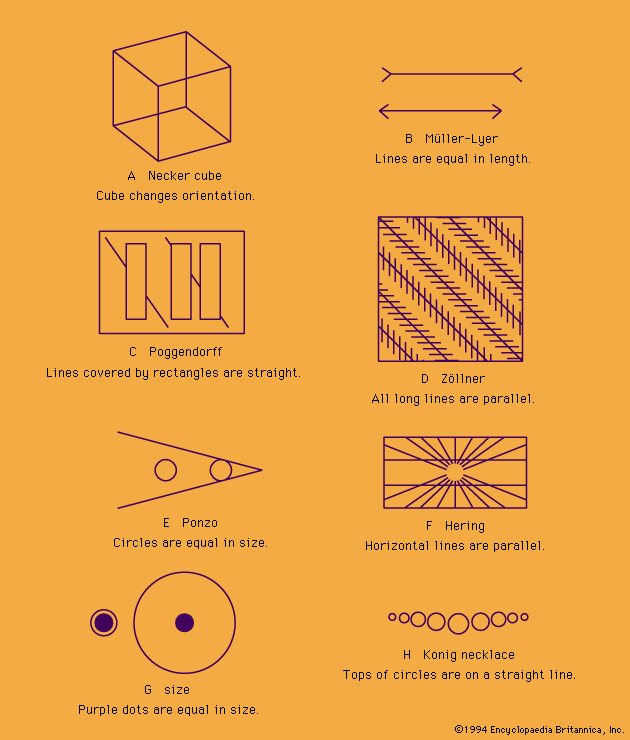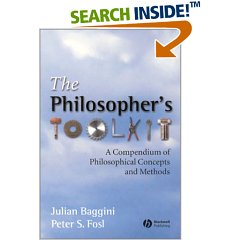I.Some preliminaries
A. Office & Office Hours: KH 144
(KH = Murray Krieger Hall)
Tuesday/Thursday 10:30-12:00
B. Please always bring your books to lecture. And when we make a transition from Descartes to Jane Austen, please bring both The Meditations and Persuasion.
C. Have your senses ever deceived you? Why do you trust your senses?

"illusion." Encyclopædia Britannica. 2007. Encyclopædia Britannica Online. 17 Sept. 2007 <http://search.eb.com/eb/article-46671>.
- Meditation #1: Everything can be doubted.
- Meditation #2: I exist. I am a thing that thinks.
- Meditation #3: God exists.
- Meditation #4: The cause of error: The capacity for willing goes beyond the capacity for knowing.
"The will extends further than the intellect" (84).
- Meditation #5: Only in the case of God does essence imply existence.
III. Descartes' heuristic method
- Meditation #6: The Meditator opens his eyes. The world exists. The mind is separate from the body.
- Descartes' Meditator re-enacts the path of discovery.
- Archimedes: Eureka! = "I have found it."
- Looking for Eureka-moments.
IV. Your toolkit
V. Lecture #1 Thesis:
Descartes demonstrates that thinking is
itself the source of knowledge.
A. Meditation #1: Concerning Those Things That Can
Be called into Doubt
1. Descartes' project: To withdraw from all past beliefs in order to think new.
2. Descartes' Doubt
- Withholding assent (e.g., 59, 63) is part of the recognizable vocabulary of skeptical thinkers.
- His purpose: "a general demolition of all [his] opinions" (59).
- The problem with destroying opinions one-by-one
- The solution: Destroy foundations. What does that mean--destroy foundations?
3. The benefit of the "dream hypothesis" and the hypothesis of the "evil genius."
- systematic doubt
- radical doubt
- extravagant doubt
- hyperbolical doubt
- rational doubt
- doubt as a device to achieve certainty
"But eventually I am forced to admit that there is nothing among the things I once believed to be true which is not permissible to doubt" (62).
B.Meditation #2: Concerning the Nature of the Human Mind: That it is Better Known than the Body1. Renewing commitment to doubt: Extreme makeover (63-4)
2. Crucial question: "Is it then the case that I too do not exist?" followed by Eureka moment:
"There is no doubt that I exist, if he is deceiving me" (64).
3. Next step: "What am I--I, who now necessarily exist?" (64). A thing that thinks = a thing that "doubts, understands, affirms, denies, wills, refuses, and that also imagines and senses" (66).
a) Even sensing is "nothing other than thinking" (66). The example of the wax (68).
b) The knowledge previously attributed to the senses Descartes now understands to emerge from the mind's operations. Empiricists have all along made a mistake.
C. Commentary
1. Returning to the issue of hyperbolical doubt: Is a general demolition of all past opinions possible? Why or why not?
2. What kind of statement is
a) There is no doubt that I exist, if he is deceiving me? or
b) "I am, I exist" is necessarily true every time I utter it or conceive it in my mind?
1) Is it an inference?
Does it depend on an unstated premise like Everyone who is deceived exists? or Everyone who utters or conceives "I am" exists?2) Or is it an illumination, a sudden understanding of a fundamental truth?
Compare: Cogito ergo sum.
I think; therefore I am.
3) What does Descartes say about this question?
3. Why might Descartes have come to be seen as a particularly modern thinker? Consider a section of one of Descartes' letters:
[T]hese six meditations contain all the foundations of my physics. But please do not tell people, for that might make it harder for supporters of Aristotle to approve them. I hope that readers will gradually get used to my principles, and recognize their truth, before they notice that they destroy the principles of Aristotle. (Qtd in Stan. Ency. of Phil.)4. Why does Descartes call his philosophical work a meditation? "[T]his undertaking is arduous" (63).
5. Why is this cartoon not so clever?


